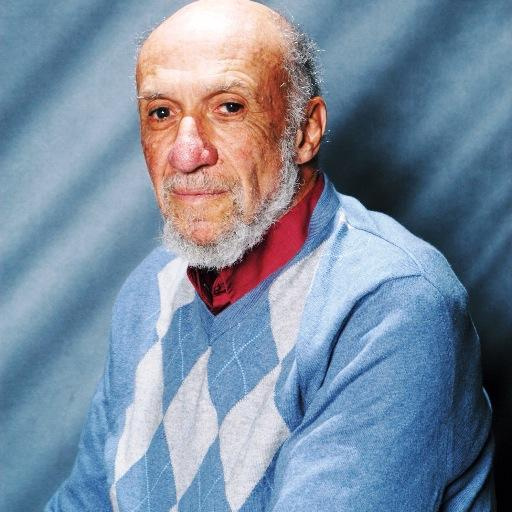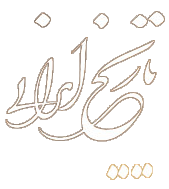میراثی که ابراهیم یزدی به یادگار گذاشت
یادداشت اختصاصی ریچارد فالک*

من برای نخستین بار در سال ۱۹۷۸ دکتر یزدی را ملاقات کردم. او رهبری گروهی از فعالان دانشجویی را در جلسهای که در دانشگاه پرینستون برگزار میشد، بر عهده داشت. آن زمان، من عضو هیات علمی این دانشگاه بودم. این نخستین برخورد من با جناح مذهبی جنبش مخالفان شاه در خارج از کشور بود. من قبل از آشنایی با دکتر یزدی نیز از کسانی که مخالف دخالت آمریکا در امور داخلی ایران بودند حمایت میکردم؛ این امر واقعیتی است که از سال ۱۹۵۳ و زمانی که سازمان سیا نقشی بزرگ و مهم در سرنگونی دولت منتخب محمد مصدق داشت، وجود داشته است. تا زمانی که با دکتر یزدی دیدار نداشتم، نقش آیتالله خمینی را به عنوان رهبر واقعی این انقلاب فوقالعاده در ایران که به نظر میرسید روز به روز قویتر میشود، به اندازه کافی درک نکرده بودم.
چند ماه بعد فرصت دیدار من با آیتالله خمینی در پاریس فراهم شد. در آن زمان، تعهد او برای ازسرگیری زندگی مذهبی پس از سرنگونی شاه و اداره دولت در تهران از سوی اشخاص سیاسی متعهد به برقراری رابطهای انساندوستانه بین دولت و ملت، من را تحت تاثیر قرار داد. همچنین از میزان اطلاع دکتر یزدی از دورنمای شخصیت آیتالله خمینی و همچنین مهدی بازرگان که در طی سفر سیاسیام به ایران پیش از ملاقات در پاریس میزبان من بود، متعجب شدم.
دکتر یزدی، از نخستین حامیان رهبری آیتالله خمینی و حاکمیت سیاسی پس از شاه بود که به وسیله قانون اساسی قدرتمند، هدایت و از سوی مقاماتی که طی انتخابات آزاد از سوی مردم انتخاب شدهاند، رهبری شود. با این حال این دیدگاه میانه در جمهوری اسلامی ایران، با مخالفت عناصر سختگیرانه اطرافیان آیتالله خمینی روبهرو شد. به نظر میرسید دیدگاه دکتر یزدی در ابتدا غالب شد؛ اما به تدریج با آن مخالفت شد و پس از تصرف سفارت که منجر به استعفای وی از سمت وزیر امور خارجه و معاون نخستوزیر دولت موقت منصوب آیتالله خمینی پس از پیروزی انقلاب برای اداره کشور شد، دیدگاه وی به طور قاطعانه رد شد. هنوز کاملا روشن نشده که آیا نظر دکتر یزدی درست بود که فکر میکرد آیتالله خمینی تصمیم مشخصی برای اداره دولت، پس از انقلاب تا حدودا زمان تصرف سفارت نگرفته است یا خیر؟ این عملیات تصرف و گروگانگیری، پس از پذیرش شاه در آمریکا، احتمالا برای درمان پزشکی صورت گرفت، البته برخی دیگر معتقدند واشنگتن از این کار، اهداف ضد انقلابی را نیز دنبال میکرد.
دکتر یزدی پس از کنارهگیری از قدرت، به جای ناپدید شدن در عرصه سیاسی، با حزب سیاسی نهضت آزادی ایران با هدف دموکراتیزه کردن این کشور، وارد گروه اپوزیسیون شد. وی حتی در سال ۲۰۰۵ از سوی نهضت آزادی ایران نامزد انتخابات ریاستجمهوری ایران شد. این امر که دکتر یزدی هیچگاه اعتماد به این ماموریت دموکراتیک را از دست نداد، شجاعت و استقامت او را میرساند. وی معتقد بود که علیرغم انتقادهای نادرست غرب از دولت ایران، مردم ایران به طور فزایندهای در حال آموختن و حتی عمل به فضائل دموکراسی هستند و مهمتر از آن، این الگوی عمل، به آرامی، واقعیت جمهوری اسلامی ایران را در مسیرهای مطلوب پیش میبرد.
این اعتقاد به مردم ایران و اینکه دموکراسی (در صورتی که قرار بر ریشه دواندن آن باشد) باید از داخل یک کشور رشد و نمو پیدا کند و هماهنگ با فرهنگ سیاسی متمایز آن باشد، باور اصلی دکتر یزدی را شکل میداد. به همین ترتیب، دیدگاه دکتر یزدی در تضاد با «لیبرالیسم بینالمللی» آمریکا بود که میگوید دموکراسی را میتوان از بیرون بر کشورها تحمیل کرد. این نظریه پس از سال ۲۰۰۳ و حمله و اشغال عراق به اوج فاجعهبار خود رسید. این مداخله به بهانه «ارتقای دموکراسی» انجام شد.
دکتر یزدی به موجب حکم شاه برای فعالیت ضد دولتی، در یک دادگاه نظامی به زندان محکوم و پس از آن با اتهامات مشابه در ایران پساانقلابی نیز زندانی شد و تنها پس از درخواست یک کمپین بینالمللی مبنی بر آزادی به دلیل سلامتی او از زندان آزاد شد.
آنچه دکتر یزدی برای ما به ارمغان گذاشت، پیام عمیق سیاسی است که به موجب آن نه تنها جهتگیری اسلامی یک حکومت میتواند با پدیدههای پلورالیسم دموکراتیک تحمل شده و با پذیرش هر آنچه مدرنیته ارائه میدهد، تلفیق شود، بلکه اگر در ایران و دیگر کشورهایی که در جستوجوی بهترین فرهنگ سیاسی در نهادهای سیاسی کشور هستند، قرار بر حاکمیت انساندوستانه باشد، باید چنین تلفیقی صورت گیرد.
بخش مهمی از این پیام که تاکنون کمتر کسی در غرب به آن توجه کرده، این است که علیرغم اشتباهات گذشته و سوءاستفادههای سیاسی، در حال حاضر مردم ایران و بسیاری از رهبران آنان، در حال آموختن روند دموکراسی هستند و همچنین اینکه دموکراسی زمانی سر بر میآورد که همگرایی اخلاق، دین و سیاست اتفاق بیفتد.
تفسیر دکتر یزدی از تحولات ایران به واسطه اقدامات تهاجمی فعلی و تبلیغات التهابی صورتگرفته از سوی اسرائیل، عربستان سعودی و ایالات متحده، در غرب به طور خطرناکی کدر و محو شده است. ما که در آرزوی صلح و عدالت هستیم، میتوانیم امیدوار باشیم که چشمانداز دکتر یزدی در ایران غلبه پیدا کند و از سوی جهان و به ویژه ایالات متحده مورد احترام قرار گیرد. اگرچه دغدغه مادامالعمر او ایران بود، اما اقدامات دکتر یزدی در راستای دموکراسی، کاربردی جهانی دارد. این امر، امروز پیشتر از هر زمان دیگری در تاریخ و نه تنها در جهان اسلام، بلکه در هر جایی که مردم به دنبال یک زندگی مشترک در پرتو احترام و درک متقابل هستند، دارای کاربرد است.
* گزارشگر سابق حقوق بشر سازمان ملل در سرزمینهای فلسطینی
***
Remembering Ebrahim Yazdi
Richard Falk
For all those dedicated to the attainment of real democracy, the name and life of Ebrahim Yazdi is a precious legacy worth reflecting upon because it has so much to teach us today. Among those who struggled for an Iranian future that was Islamic, genuinely democratic, and humanly decent no one was more steadfast and clear about their commitment than Dr. Yazdi. He participated in the revolution that overthrew the Shah long before its victory was achieved, and yet he vigorously opposed the radicalizing tendencies that led to the take over of the Iranian governing process at the time of the seizure of the American Embassy in Tehran in November 1979.
I first met Dr. Yazdi in the middle of 1978 when he led a group of student activists at an event organized at Princeton University where I was a faculty member. It was my first encounter with the religious wing of the overseas movement opposed to the Shah. I had been previously supportive of those opposing the American interference in the internal affairs of Iran, a reality that existed ever since 1953 when the CIA played such a major role in the overthrow of the elected government of Mohammad Mosaddeq. Until meeting with Dr. Yazdi I had not adequately appreciated the role of Ayatollah Khomeini as the real leader of this extraordinary revolution unfolding in Iran that seemed to be growing stronger each day.
Some months later I had the opportunity to meet Ayatollah Khomeini in Paris, and was impressed at the time by his seeming commitment to resume a religious life and let post-Shah Iran be run in Tehran by political figures dedicated to establishing a humane relationship between the Iranian state and its people. I was struck by the degree to which the moderate views of Dr. Yazdi seemed to also inform the outlook of Ayatollah Khomeini, as well as Mehdi Bazargan, who had been my host during a political visit to Iran just prior to the meeting in Paris.
Dr. Yazdi was an early supporter of Khomeini’s leadership and encouraged a post-Shah governing process that would be guided by a strong constitution and led by officials selected by the people at free elections. However, this moderate vision of the Islamic Republic of Iran was opposed by various hardline elements in the Khomeini entourage. The views of Dr. Yazdi seemed to win out at first, but gradually lost out, being decisively rejected after the embassy seizure that led to his resignation as Foreign Minister and Deputy Prime Minister of the Interim Government that had been appointed by Khomeini to run the country immediately after the revolutionary victory. No one has yet clarified whether Dr. Yazdi was correct in thinking that Khomeini was undecided as to how post-Shah Iran should be governed until around the time of the hostage seizure, which had been provoked by the Shah’s admission to the U.S. supposedly for medical treatment, although others suspected Washington’s counterrevolutionary intentions..
Rather than disappear from the political arena after removing himself from authority, Dr. Yazdi entered the opposition, forming a political party, the Freedom Movement of Iran, which was dedicated to the democratizing of Iran. He even sought the presidency as the party’s candidate in 2005. It is a tribute to Dr. Yazdi’s courage and perseverance that he never lost faith in this democratizing mission, and believed that despite all the adverse Western criticisms of the Iranian government, the people of Iran were increasingly learning, and even practicing, the true virtues of democracy, and more significantly, that this pattern of practice was slowly transforming the reality of the Islamic Republic of Iran in desirable directions.
It is this faith in the Iranian people and the related conviction that democracy, if it is to take root, must be grown and nurtured from within a country and in harmony with its distinctive political culture that is the core belief of Dr. Yazdi. As such, Dr. Yazdi’s view clashed with America’s ‘international liberalism’ that acted as if democracy could be imposed from without, a position that reached its disastrous climax by the attack on and occupation of Iraq after 2003, an intervention justified under the banner of ‘democracy promotion.’
Dr. Yazdi was sentenced to prison by a military court during the Shah’s rule for anti-government activity and then imprisoned in Iran under similar charges, being released only after an international campaign appealed to Iranian authorities on grounds of health. What Dr. Yazdi leaves us with is the profound political message that not only can an Islamic orientation toward governance be combined with democratic pluralism, tolerance, constitutionalism and a receptivity to all that modernity has to offer, but that is must be so combined if humane governance is to be achieved for Iran and other countries seeking to embed the best of their political culture in their political institutions.
A crucial part of this message, which few have so far grasped in the West, is that this process of democratization is presently being learned by the Iranian people and many of their leaders despite the past mistakes and abuses of the regime, and that democracy will arise when there a convergence of ethics, religion, and politics takes place.
Dr. Yazdi’s interpretation of Iranian developments is being dangerously obscured in the West by the current aggressive postures adopted and inflammatory propaganda disseminated by Israel, Saudi Arabia, and the United States. We who wish for peace and justice can only hope that Dr. Yazdi’s vision comes to prevail in Iran and is respected by the world, and especially by the United States. Although his lifelong preoccupation was Iran, Dr. Yazdi’s engagement with democracy has universal applicability, and never more than now, and not only in the Islamic world, but wherever people seek to live together in a spirit of mutual respect and understanding.

نظر شما :